Our research centres around the body and how technology can be used to improve how that body exists and interacts with the surrounding environment. We focus on haptic and aural modalities, using textiles as the physical medium for building wearable computational systems. Some of the research projects we undertake focus exclusively on textile sensing and interfaces whilst other focus solely on how auditory displays can be improved for users. A growing area of our work is looking towards how these two complementary technologies can be brought together in novel applications.
Below is an non-exhaustive list of some of the research we have undertaken.
Previous Research Projects
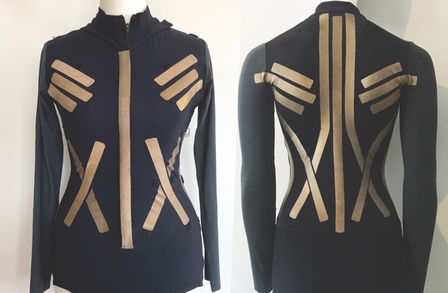
Textile-based sensing system for dance movement(PhD by An Liang). Using e-textile stretch sensors to capture the movements of dancers for digital performance. Explores knitted stretch sensors properties, the methods of integrating the sensors into a garment, and a user-centred design and evaluation of the dance leotard for movement sensing.
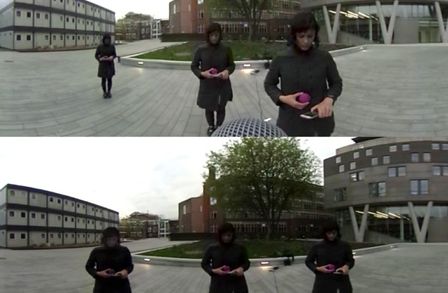
Aesthetic potentials of distance in spatial sound for immersive environments (PhD by Angela McArthur). The aesthetics of spatial sound in audiovisual, immersive environments using approaches to analyse the aesthetic experience in a way which affords exploration of the both the subjective and objective. This draws out a fuller range of findings for the practitioner.
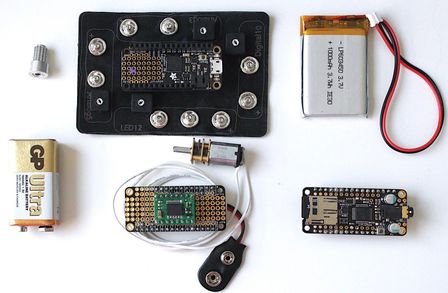
Integrating interactive technology with material expertise in textile and fashion design education (PhD by Mei Zhang). Traditional design education has a lack of pedagogically aligned learning resources for textile/fashion designers to develop technical skills alongside their expertise. Investigates how to support designers to implement embedded interactive systems in their work and how interdisciplinary collaborations can be improved as designers becoming familiar with available technology design spaces and their affordances.
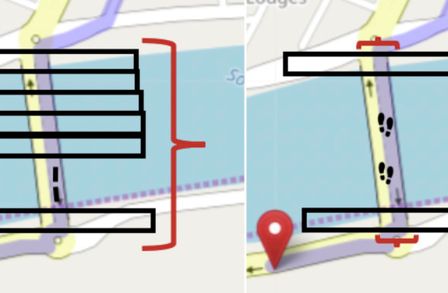
Investigation into customisable automatically generated auditory route overviews for strategic planning of routes (PhD by Nida Aziz). Requirements and criteria for the design of auditory route overviews including design and implementation of sonifications of route features. Moreover, determining whether such a system supports strategic decision-making regarding route choices for blind travellers.
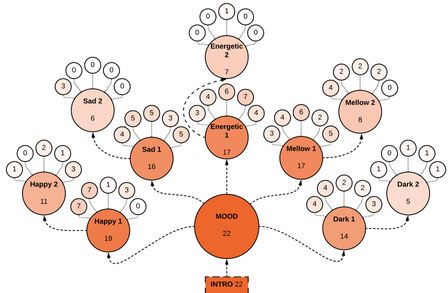
Binaural interfaces for browsing music (PhD by Rishi Shukla). Explores the possibilities for binaural virtual auditory display of music collections, with the aim of uncovering flexible and interactive approaches for navigating, exploring and choosing content. Contributes to the fields of sonic interaction design and spatial audio engineering.
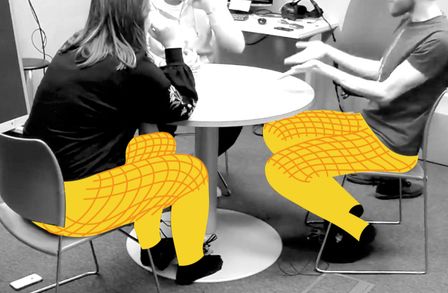
Sensing social signals with textiles (PhD by Sophie Skach). Focusing on nonverbal cues in natural conversation, measuring body movement by developing textile pressure sensors embedded in custom made trousers. Can classify a variety of sitting postures and distinguish between listeners and speakers, and with simple machine learning techniques, can even pick up complex interactional signals, establishing textiles as an appropriate sensing material to investigate human behaviour.
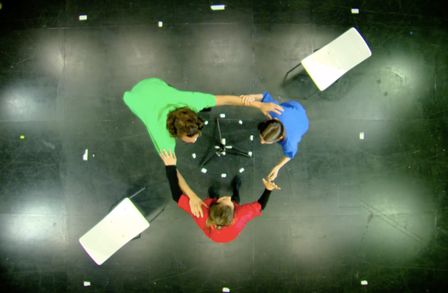
A computational approach to analysing timing and structure in stand-up comedy (PhD by Vanessa Pope). Research focussing on systematic and computational analyses of the audio generated by a stage performer's craft. Developed a computational method of analysing structure in stand-up comedy.
Active Research Projects

Textile-based sensing system for dance movement(PhD by An Liang). Using e-textile stretch sensors to capture the movements of dancers for digital performance. Explores knitted stretch sensors properties, the methods of integrating the sensors into a garment, and a user-centred design and evaluation of the dance leotard for movement sensing.

Aesthetic potentials of distance in spatial sound for immersive environments (PhD by Angela McArthur). The aesthetics of spatial sound in audiovisual, immersive environments using approaches to analyse the aesthetic experience in a way which affords exploration of the both the subjective and objective. This draws out a fuller range of findings for the practitioner.

Integrating interactive technology with material expertise in textile and fashion design education (PhD by Mei Zhang). Traditional design education has a lack of pedagogically aligned learning resources for textile/fashion designers to develop technical skills alongside their expertise. Investigates how to support designers to implement embedded interactive systems in their work and how interdisciplinary collaborations can be improved as designers becoming familiar with available technology design spaces and their affordances.

Investigation into customisable automatically generated auditory route overviews for strategic planning of routes (PhD by Nida Aziz). Requirements and criteria for the design of auditory route overviews including design and implementation of sonifications of route features. Moreover, determining whether such a system supports strategic decision-making regarding route choices for blind travellers.

Binaural interfaces for browsing music (PhD by Rishi Shukla). Explores the possibilities for binaural virtual auditory display of music collections, with the aim of uncovering flexible and interactive approaches for navigating, exploring and choosing content. Contributes to the fields of sonic interaction design and spatial audio engineering.

Sensing social signals with textiles (PhD by Sophie Skach). Focusing on nonverbal cues in natural conversation, measuring body movement by developing textile pressure sensors embedded in custom made trousers. Can classify a variety of sitting postures and distinguish between listeners and speakers, and with simple machine learning techniques, can even pick up complex interactional signals, establishing textiles as an appropriate sensing material to investigate human behaviour.

A computational approach to analysing timing and structure in stand-up comedy (PhD by Vanessa Pope). Research focussing on systematic and computational analyses of the audio generated by a stage performer's craft. Developed a computational method of analysing structure in stand-up comedy.